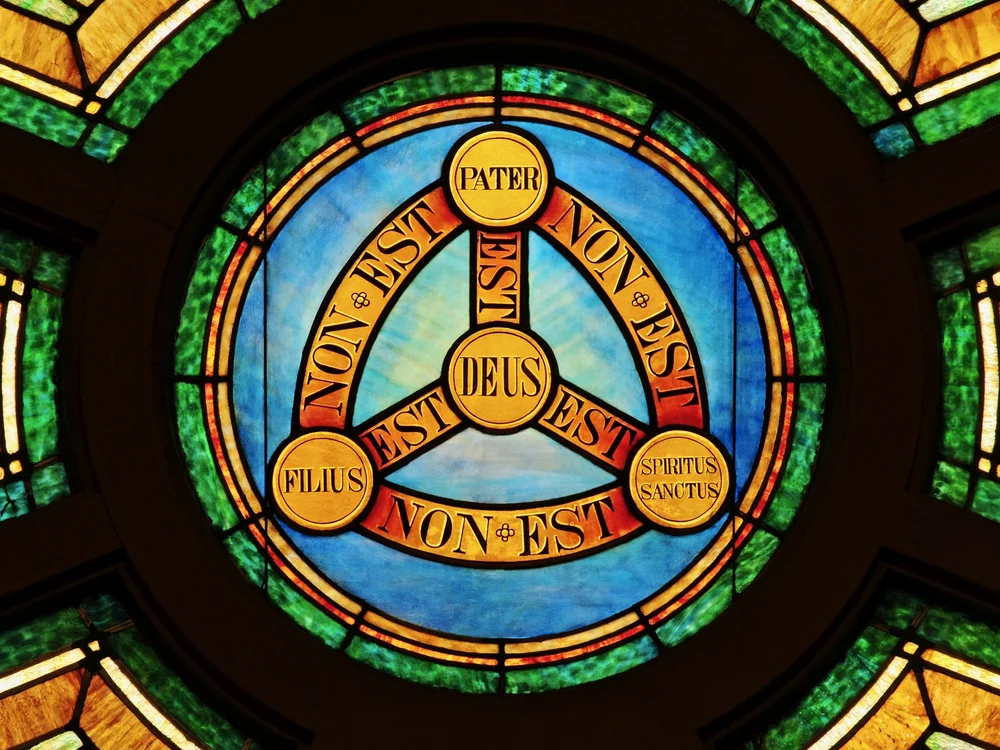
Photo by A. L. on Unsplash
Disclosure: This post may contain affiliate links, meaning Beautiful Christian Life LLC may get a commission if you decide to make a purchase through its links, at no cost to you.
Do you know unmarried couples who attend church, have consensual sex, and may even live together? According to a study by the Barna Group,
The majority of American adults believe cohabitation is generally a good idea. Two thirds of adults (65%) either strongly or somewhat agree that it’s a good idea to live with one’s significant other before getting married, compared to one-third (35%) who either strongly or somewhat disagree. (Barna Group, “Majority of Americans Now Believe in Cohabitation,” June 24, 2016)
Of the 65 percent of American adults surveyed who were okay with cohabitation, a good number of them identified themselves as Christians. In fact, 41 percent of practicing Christians surveyed (defined by Barna as “those who attend a religious service at least once a month, who say their faith is very important in their lives and self-identify as a Christian”) approved of living together before marriage. While this figure is far below the 88 percent approval by people who do not profess any kind of faith, the fact that over 40 percent of self-professing Christians tolerate cohabitation attests to the far-reaching effects of secular culture upon believers.
The reasons people marry today are not necessarily the same as what has motivated couples to exchange vows throughout history. According to Roxanne Stone, editor in chief at Barna Group,
The institution of marriage has undergone significant shifts in the last century…What was once seen as primarily an economic and procreational partnership, has become an exercise in finding your soulmate....[Young people] want to make sure they get it right and to avoid the heartbreak they witnessed in the lives of their parents or their friends’ parents. Living together has become a de facto way of testing the relationship before making a final commitment.
Many Christian couples justify cohabitation with the rationalization that they are going to get married eventually. The demands of school, career, concerns regarding compatibility, and the desire to save enough money to buy a home (or even pay for a wedding!) are all reasons Christians give for delaying marriage and having sex in the meantime. Should church leaders look the other way when they know unmarried couples in their congregation are living together? What does the Bible have to say about sex before marriage?
OpenBible.com lists one hundred Bible passages on the topic of fornication (sexual immorality), and every one of these passages condemns the practice. The Greek word for fornication is πορνεία (porneía), and it occurs twenty-five times in the New Testament. The word porneía is a broad term referring to sexual immorality of any type.
Scripture uses the word porneía in regard to the temptation to engage in sexual activity outside of marriage:
But because of the temptation to sexual immorality (porneías), each man should have his own wife and each woman her own husband. (1 Cor. 7:2)
Notice that Paul does not say, “each man should have his own committed partner, and each woman her own committed partner.” The sexual immorality to which Paul is referring here happens when sex occurs outside of the marital union.
Earlier in his letter to the Corinthians, Paul uses the same root word in his list of immoralities that should never characterize God’s people:
Or do you not know that the unrighteous will not inherit the kingdom of God? Do not be deceived: neither the sexually immoral (pornoi), nor idolaters, nor adulterers, nor men who practice homosexuality, nor thieves, nor the greedy, nor drunkards, nor revilers, nor swindlers will inherit the kingdom of God. And such were some of you. But you were washed, you were sanctified, you were justified in the name of the Lord Jesus Christ and by the Spirit of our God. (1 Cor. 6:9–11)
I could go into detail about how human marriage is an analogy of the believer’s union with Christ, why children are better off in a family with a mother and father who are married to each other, and why marriage creates an atmosphere of trust and stability that cohabitation, by definition, can never provide. Stone concludes that the solution lies with this kind of logic:
Religious leaders will need to promote the countercultural trend by celebrating the reasons to wait—rather than trying to find evidence for why it’s wrong (because such tangible, measurable evidence may not exist). What are the spiritual reasons for waiting? How does waiting promote better discipleship? Better marriages? A better family life? These are the questions that young people, in particular, will need answered in order to resist the cultural tide toward cohabitation.
Even though there certainly are compelling benefits for Christians to choose to marry instead of cohabitate, the most compelling reason of all is actually the one Stone dismisses due to a possible lack of evidence: obedience.
If you believe Christ died on a cross for your sins and you are trusting in Christ alone for your salvation, Christ commands you to pick up your cross and follow him (Matt. 16:24). Sex outside of marriage is a sin, no matter how a person tries to interpret Scripture otherwise, and every Christian is called to obey God in this aspect of life. Jesus said,
“Whoever has my commandments and keeps them, he it is who loves me. And he who loves me will be loved by my Father, and I will love him and manifest myself to him.” (John 14:21)
The apostle John reinforces the necessity for Christians to obey God’s commands:
For this is the love of God, that we keep his commandments. And his commandments are not burdensome. (1 John 5:3)
We have all sinned. We have all done things we wish we could undo. We have all fallen short. Because of our sin and guilt, God sent his Son into the world so that we would receive grace, forgiveness, and reconciliation with God by faith alone in Christ alone (Rom. 5:10; Eph. 2:8–9). Being a Christian doesn't mean we will never sin in this life. It does mean that we should never be okay with sinning or condone it.
All believers face a lifelong battle against sin, and sometimes—or even often—we will fail in a particular struggle (Rom. 7:14–25). God's grace is waiting to embrace us in these moments (Rom. 3:20–24; 1 John 1:9).
Here’s the thing: you do not have to be defined by what you have done up to this point in time. If you are cohabitating with someone, you have a duty before God to stop having sex and move out right now. Just because we cannot keep God’s commands perfectly in this life doesn’t mean we shouldn’t seek God’s help in fighting sin and try with all our might to do what is right in his sight.
Here are some positive steps you can take right now to obey God when it comes to the Bible’s command to abstain from fornication:
-
If you are cohabitating with someone, move out immediately and find a suitable roommate with whom you are not sexually involved.
-
Inform your boyfriend/girlfriend/fiancé regarding your commitment to abstain from sex before marriage.
-
Establish accountability with your pastor and/or elder of your church regarding being sexually pure.
-
If you attend a church with no formal membership, where you can come and go as you please without any accountability regarding your moral choices, begin attending a church where you will have that accountability. If you have been skipping church because you feel guilty/convicted about your sin, schedule a meeting with your pastor or elders today and give them the opportunity to support you in your determination to obey God in the area of sexual purity.
-
Distance yourself from church-going friends who persist in cohabitating, and build relationships with Christians who will encourage you and hold you accountable in abstaining from sex before marriage.
Are you worried that your relationship might not survive a commitment to abstinence? Well, it’s better to know now what kind of person you are involved with. If your partner cannot sacrifice the physical pleasures of sex so that you can be obedient to God, then this person may not be willing to make the sacrifices that are sure to come later in married life when one of you is physically or mentally ill, there is marital discord, or you are just tired of being married to each other for whatever reason. Marry someone who encourages you in godly obedience, not someone who leads you astray.
It’s never too late to start obeying your Savior and make good choices that honor God. Don’t believe the lie that if you have sinned in the area of sexual purity with your significant other, you have already messed up and it’s too late.
God is not a cosmic party pooper. He gives us boundaries for a very good reason: it is through obeying God’s commands that we show love for our Lord, our neighbors, and even ourselves. Ask God today for his forgiveness in any area you have sinned, turn away from activities that dishonor him, and commit to walking uprightly in the light of his love and mercy.
Related Articles:
Le Ann Trees is managing editor of Beautiful Christian Life. This article has been updated since its original publishing date of December 6, 2017.
Click Here to Subscribe to BCL's Free Monthly Newsletter and Weekday DevotionalRecommended:
The Meaning of Marriage: Facing the Complexities of Commitment with the Wisdom of God by Timothy Keller

This article was originally published under the title "Is It a Sin to Have Sex Before Marriage?" at www.cccdiscover.com.
from BLOG - Beautiful Christian Life https://ift.tt/te2lwqn
via IFTTT








![PHAN SHANNON GARCIA, USN [Public domain]; Image from Wikimedia Commons](https://images.squarespace-cdn.com/content/v1/58cc676c86e6c09542c6661a/1558559271491-5I9UND0QVV1NPSKASN33/13th_MEU_disembarking_Bright_Star_2005+HERO.jpg?format=1000w)







